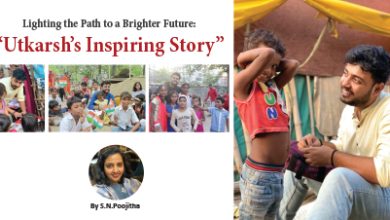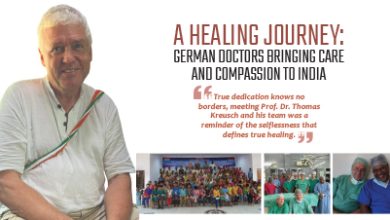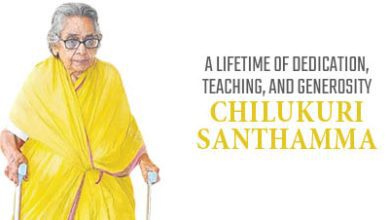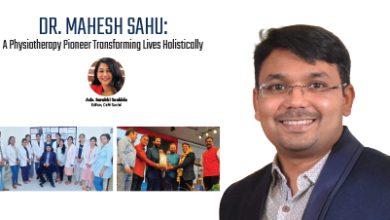From Menstrual Exile to Hope: Dr Rani Bang’s Journey of Healing Tribal Women

“Of all the forms of inequality, injustice in health care is the most shocking and inhumane.” ~ Martin Luther King, Jr.
Nearly four decades ago, while prestigious careers awaited Dr. Abhay and Dr. Rani Bang after completing their studies at Johns Hopkins University, life took them down an uncharted path. Instead of settling for comfortable lives in the West, they chose the rugged, remote tribal district of Gadchiroli in Maharashtra, a place forgotten by modern healthcare. What awaited them was far more than a professional challenge; it was a mission driven by love, compassion, and an unwavering fight for dignity in healthcare.
The defining moment in their journey came in 1985, when Dr. Rani Bang encountered a heart-wrenching tragedy that would alter the course of their lives. An 18-year-old tribal girl had died from a snakebite while confined in a kurma ghar, a mud hut where menstruating women were exiled due to being considered “impure.” Life-saving anti-venom was available, but no one dared approach her, her monthly cycle sealed her fate.


“The snake didn’t kill her; society’s venom did,” Dr. Rani reflected. This single incident laid bare the lethal consequences of entrenched taboos and deep-rooted social stigmas that dictated tribal women’s lives.
But instead of confronting the cultural practice head-on, the Bangs took a different path. They respected tribal traditions while reshaping them with compassion and practicality. They built safer, more hygienic kurma ghars equipped with essential amenities like clean water, sanitation, and privacy. This thoughtful approach bridged the gap between custom and care, offering women safety without challenging their deeply held beliefs.
Yet, their mission went far beyond menstrual care. They quickly realized that healthcare in Gadchiroli was almost nonexistent. Most villagers lived miles away from the nearest hospital, and preventable deaths from infections, childbirth complications, and malnutrition were heartbreakingly common.
Determined to bring healthcare directly to the people, the Bangs founded SEARCH (Society for Education, Action, and Research in Community Health). They pioneered a healthcare model rooted in community participation by training local village women as healthcare workers. These “barefoot doctors” were taught to detect and treat life-threatening conditions such as pneumonia, malaria, and sepsis, illnesses that claimed countless young lives in the region.
Their approach was revolutionary. By placing healthcare in the hands of the community, they reduced infant mortality by 60%, a model now recognized and implemented globally by organizations such as the World Health Organization (WHO). SEARCH also established the “Home-Based Newborn Care” program, ensuring that even the most vulnerable newborns could receive timely care.
As their work expanded, so did their battles. They waged war against unsafe abortions, sexual exploitation, and life-threatening childbirth practices. Dr. Rani’s relentless advocacy for women’s reproductive rights shattered cultural taboos and saved thousands of lives.
The couple’s compassionate commitment extended beyond medicine. They listened, empathized, and understood the people they served, respecting their traditions while gently guiding them toward healthier lives. They built hospitals and research centers, but more importantly, they built trust and hope.
Today, SEARCH touches over a lakh (100,000) lives annually. Its impact has transformed not only Gadchiroli, but also health policies worldwide. Their efforts have been recognized with numerous national and international honors, yet the Bangs remain deeply rooted in the community they vowed to serve.
For Dr. Rani Bang, every life saved is a step toward healing generations of neglect and systemic inequality. “We feel privileged,” she humbly states. “We didn’t choose Gadchiroli; it chose us.”
Their extraordinary journey reminds us that the most profound healing comes not from medicine alone, but from compassion, respect, and the belief that every life no matter how remote or forgotten matters. Through their work, they have proven that love, dignity, and determination can overcome even the most stubborn social injustices. Their story is a powerful testament to what can be achieved when medical expertise meets human empathy, transforming healthcare into a force of hope, healing, and humanity.







